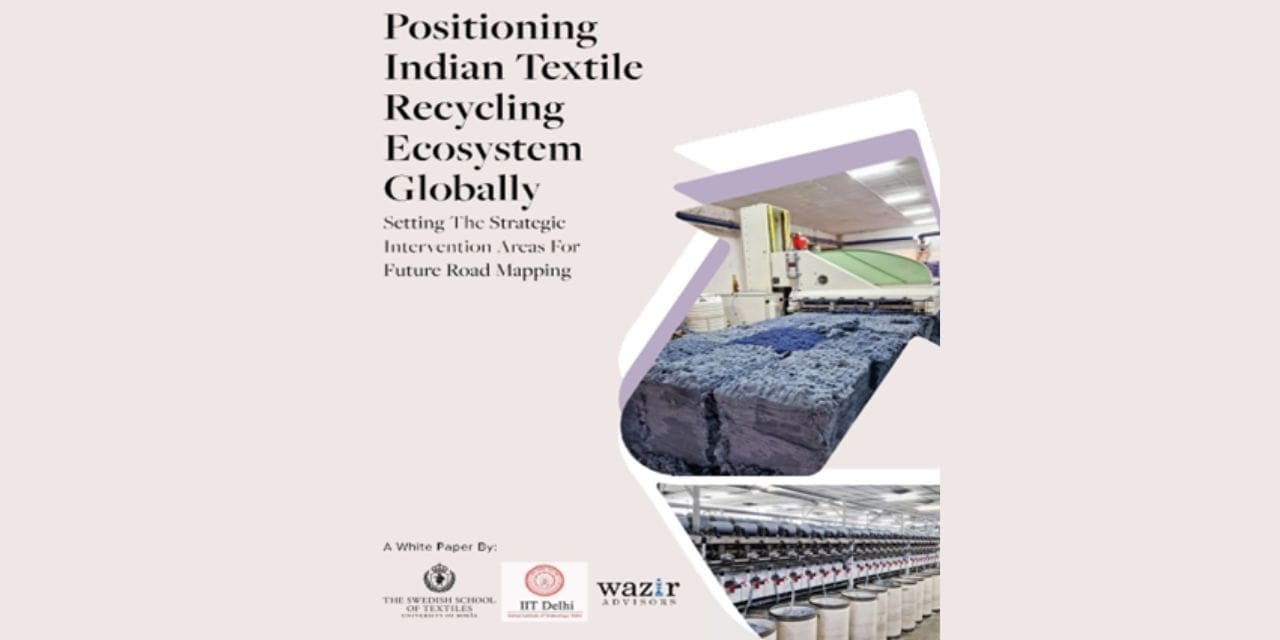Setting the strategic intervention areas for future road mapping
Wazir Advisors, The Swedish School of Textiles – University of Borås, and Indian Institute of Technology, Delhi have today released a whitepaper titled ‘Positioning Indian textile recycling ecosystem globally: Setting the strategic intervention areas for future road mapping’. It aims to promote a cross-border textile recycling value chain, align market supply and demand, and foster innovation and PPPs with government support.
The whitepaper explores four key dimensions essential for scaling textile recycling ecosystems and their underlying value chains: optimizing the value chain, aligning supply with market demand, crafting sustainable ecosystem designs, and garnering external support to ensure equity among value chain participants. The report also identifies 13 Strategic Intervention Areas (SIAs) crucial for enhancing and valorizing the Indian textile recycling ecosystem.
Authors of the report, Prof. Rudrajeet Pal (Professor of Textile Value Chain at The Swedish School of Textiles, Univ. of Borås), Prof. Abhijit Majumdar (Chaired Professor at Department of Textile & Fiber Engineering, IIT Delhi), and Mr. Varun Vaid (Business Director, Wazir Advisors), stated “we believe this whitepaper is a critical step forward in building a sustainable and competitive textile recycling ecosystem in India. By identifying the key strategic intervention areas, we aim to catalyze collaboration and innovation across the industry, ultimately driving economic growth and environmental stewardship.”
The report’s insights are rooted in extensive research and field activities that began in 2016 at The Swedish School of Textiles, focusing on Kandla SEZ and Panipat. This effort encompasses over 25 interviews, more than 20 site visits, and a brainstorming session featuring over 20 sector stakeholders.
“This paves the path for more strategic interventions initiated already through our partnership, with grant received from Indo-Swedish funding agencies, and we believe that the outcomes will be of immense benefit to inform both practice and policy. We are currently developing a data-driven tool for decision support that will make it easier for companies and business support organizations to work in the complex textile recycling value chain”, added the authors.
The digital copy of the whitepaper is available on request.

